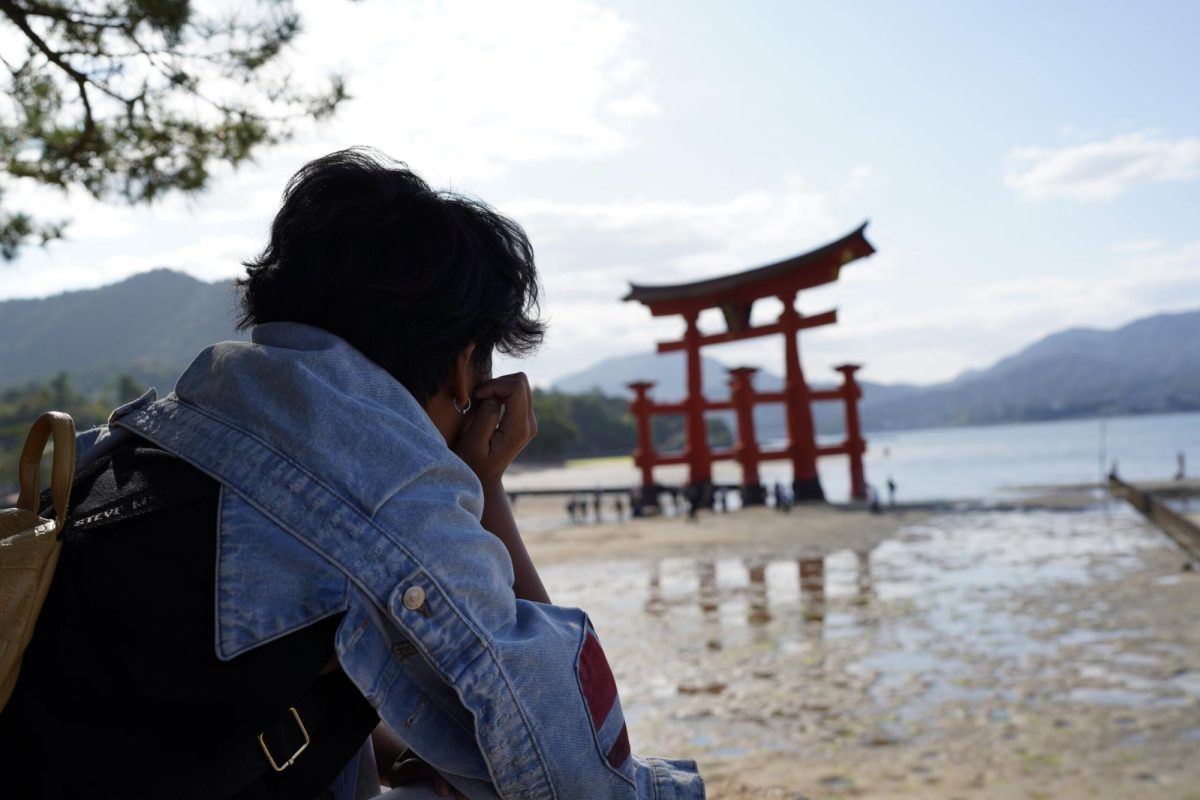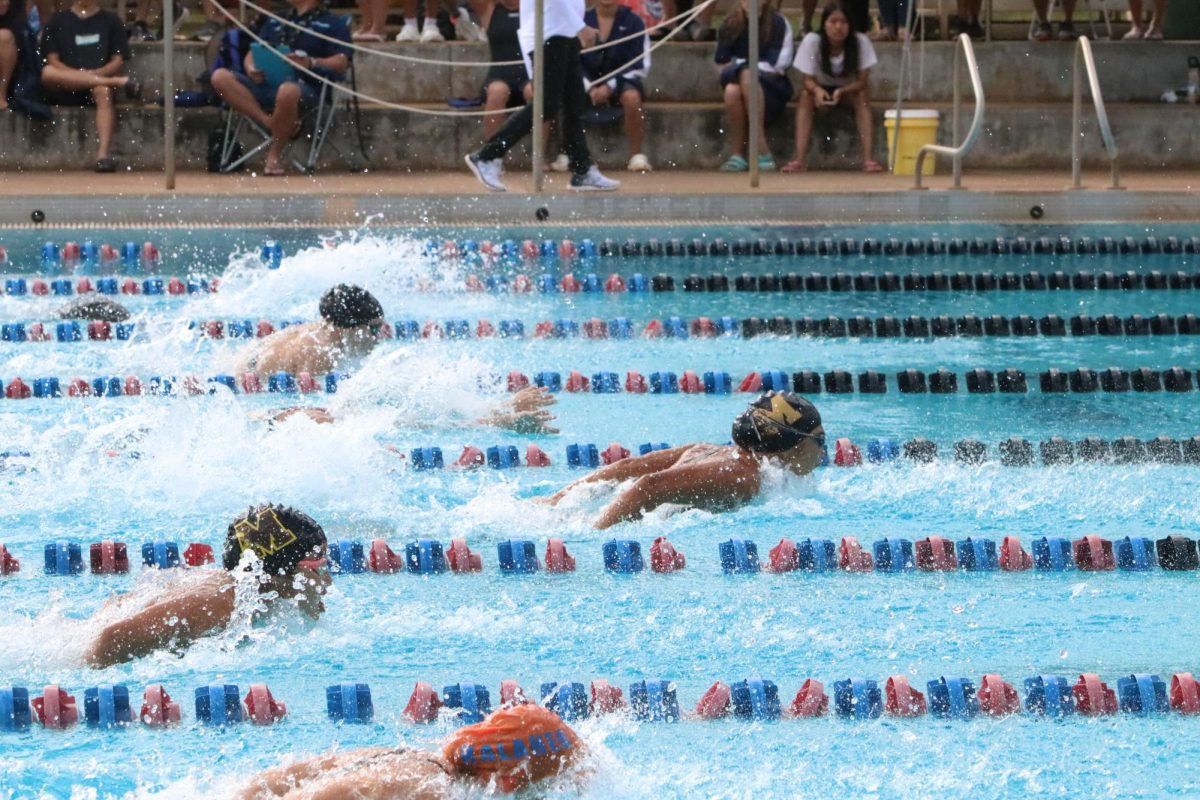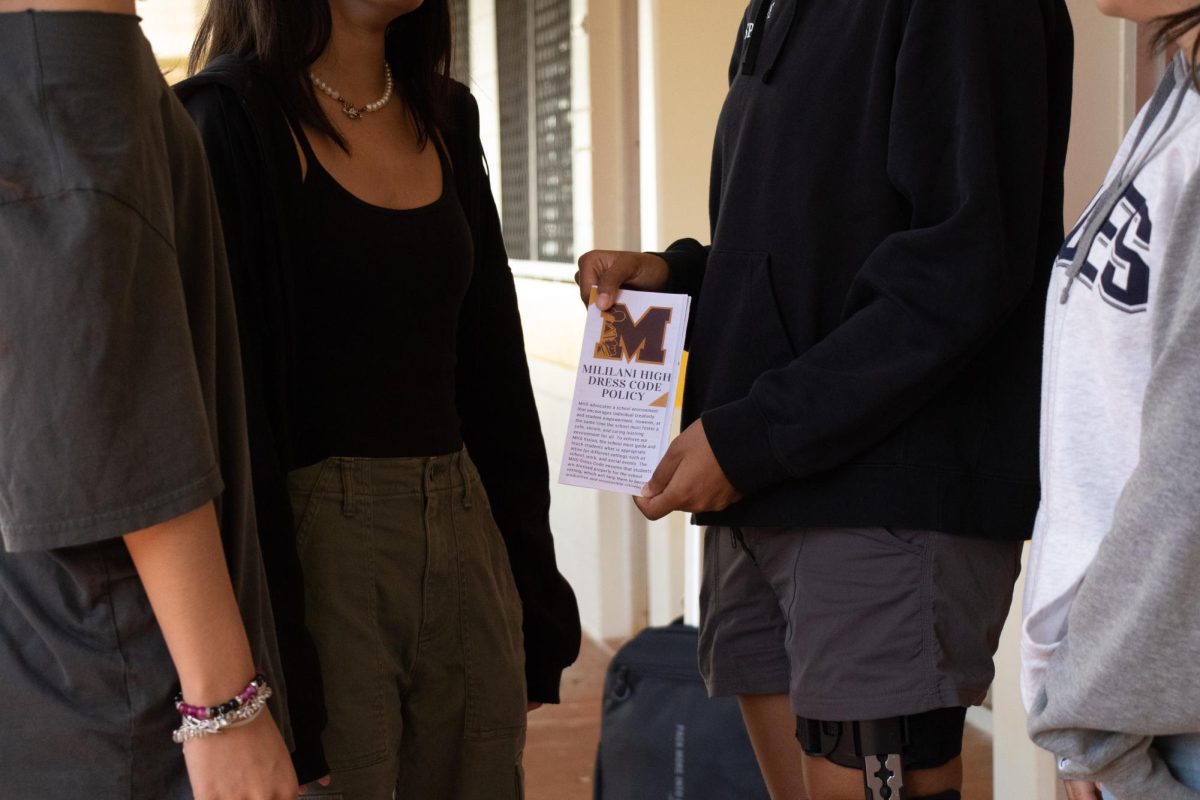Changing A Friend’s Life: Best Buddies Club Recognized
September 3, 2019
Entering its third year of existence, MHS’s Best Buddies club was recently recognized as an Outstanding Chapter for the 2018-19 academic school year by Best Buddies International. From July 19 to July 22, Best Buddies club President Senior Ty Yamamoto and English teacher Robin Dazzeo attended the Best Buddies Leadership Conference in Bloomington, Indiana to receive the award.
“So every summer, Best Buddies International brings everybody together in Indiana at the university and celebrates inclusion. And Best Buddies as a club, we were only looking at including people who are on our campus. Best Buddies as a mission looks at inclusive housing, inclusive jobs, that sort of thing. So we just get everybody together. People come from every high school across the country and across the world. They had different chapters from — I think China was there this year, Japan (and) Canada,” said Dazzeo.
Despite its short lifespan, the MHS branch of Best Buddies has already experienced great success. The club has helped create relationships between general education students and students with Intellectual or Developmental Disabilities (IDD). “So basically students with special education or with intellectual disabilities, we pair them up with (general education) students. We try and encourage them to make meaningful relationships. And we set up events so they can both interact with each other, but also they can become better friends. And it teaches — I guess it encourages the students to reach out more. And it’s great for that part, but the IDD students also feel more involved in school. And a lot of them have anxiety issues, or they have autism. So it really encourages them to come out of their shell,” said Yamamoto.
In addition to the relationships created, the club has also helped the Buddies in their academics. For many of the Community Based Instruction (CBI) students, their newfound friendships have led to a boost in their communication skills. “That first year, he (Yamamoto) was paired with a boy named Christian who could speak but often chose not to and a lot of students in CBI have a skills trainer or a one to one professional that helps them be successful. And so that person was taking data on Christian’s ability to converse. And she has data that shows him when he met Ty throughout the entire school year (and) his communication skills were like the best they’d ever seen. It was this measurable growth in his communication skills,” said Dazzeo.
Yamamoto added, “Their attitude in school gets better. And a lot of times, they even actually start working better or they start communicating and their speech gets better. And it’s just like, because the students are taking time out to create relationships with the (CBI) students, it’s what encourages the students to work harder or to feel more comfortable in the school area.”
During the leadership conference, Yamamoto spent most of his time attending different trainings for lessons on how to become a better leader or how to manage the club. In addition, several guest speakers came to share their stories. “My favorite part of the trip was — I just remember seeing this girl, she actually made a speech. She was a lawyer. She had autism. And well, she said she was the first lawyer to — person to become a lawyer in Texas that has autism,” said Yamamoto. “But then I remember she talked about how she couldn’t talk to anyone in school. And she felt like she was really — like everyone kind of downplayed her and everything. But she also felt she was worthless and she couldn’t do anything. But just through a system of people that constantly kept her encouraged and stuff and (she) just constantly worked, she just continued to have the strive to work hard because of the relationships she built.”
One aspect of the conference that is emphasized is the inclusion of everyone, regardless of their background. For Dazzeo, this is one of the reasons why she enjoys being a part of the Best Buddies organization. “I think we were a little over 2600 (people) this year. And I’d say at least a third of them are people with physical or intellectual disabilities. Oh, it’s amazing. Because this is their thing. This is their I don’t know, it’s not a — club isn’t the right word. This is their organization. This is like they get a voice. They’re not looked at as different. They’re just looked at as people,” said Dazzeo. “For me, my favorite part is watching my leaders get it, it just clicked. Something about going to conference makes you realize that this isn’t a small club at MHS but, ‘Oh my God,’ look what we can do when you’re inclusive to everybody, no matter who they are.”
For Yamamoto and other members of Best Buddies, the club has made an impact on their lives. Through this club, the strong friendships that have been created have influenced the way many students go about their lives. “I definitely — I think I became (a) better person. And slowly, I think I also want — like (I have) a higher desire to reach out and to make other people happy. And in the beginning, I was definitely super quiet. I still am but I was like — I couldn’t really talk to people. And I was very kept to myself. And there have been times where I just thought, ‘Oh, I’m the worst, like I can’t talk to people I’m such a weirdo,’ but after meeting my buddy, I kind of realized that like, there are people with my problems, like with my anxiety and a lot have way bigger disadvantages,” said Yamamoto.
During the new school year, Yamamoto hopes to implement changes into the club. Several of these ideas were inspired by problems from the past few years. “A problem in the past is that a lot of students seem to bail out really early on. I feel they don’t feel included, or they don’t feel like they’re making a difference when they are,” said Yamamoto. “Also, I feel we can definitely involve them in more events. And we can also — we’re going to start probably teaching them what different disorders are with stuff like autism, what Down Syndrome (is), and you know, just so the students will understand that they can apply it, see (it) when they talk to their buddy and when they interact. So they can definitely figure out an even better way to interact with their buddy and they can understand why their buddy is the way they are.”
If you’re interested in joining Best Buddies club or need more information, visit Ms. Dazzeo in L206.



